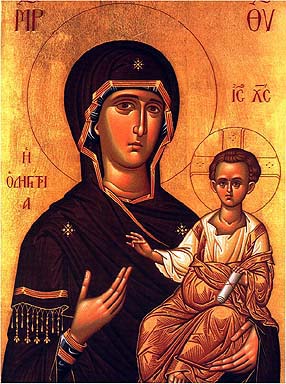"Against Pharisees" (Polonia Christiana, November 5, 2014).
The entire interview is well worth reading; but here are a couple of excerpts (emphasis added):
During the Synod there had been moments of obvious manipulation on the part of some clerics who held key positions in the editorial and governing structure of the Synod. The interim report (Relatio post disceptationem) was clearly a prefabricated text with no reference to the actual statements of the Synod fathers. In the sections on homosexuality, sexuality and “divorced and remarried” with their admittance to the sacraments the text represents a radical neo-pagan ideology. This is the first time in Church history that such a heterodox text was actually published as a document of an official meeting of Catholic bishops under the guidance of a pope, even though the text only had a preliminary character. Thanks be to God and to the prayers of the faithful all over the world that a consistent number of Synod fathers resolutely rejected such an agenda; this agenda reflects the corrupt and pagan main stream morality of our time, which is being imposed globally by means of political pressure and through the almost all-powerful official mass media, which are loyal to the principles of the world gender ideology party. Such a synod document, even if only preliminary, is a real shame and an indication to the extent the spirit of the anti-Christian world has already penetrated such important levels of the life of the Church. This document will remain for the future generations and for the historians a black mark which has stained the honour of the Apostolic See. Fortunately the Message of the Synod Fathers is a real Catholic document which outlines the Divine truth on family without being silent about the deeper roots of the problems, i.e. about the reality of sin. It gives real courage and consolation to Catholic families. Some quotations: “We think of the burden imposed by life in the suffering that can arise with a child with special needs, with grave illness, in deterioration of old age, or in the death of a loved one. We admire the fidelity of so many families who endure these trials with courage, faith, and love. They see them not as a burden inflicted on them, but as something in which they themselves give, seeing the suffering Christ in the weakness of the flesh.Read more >>
....
The Church and the world do urgently need intrepid and candid witnesses of the whole truth of the commandment and of the will of God, of the whole truth of Christ’s words on marriage. Modern clerical Pharisees and Scribes, those bishops and cardinals who throw grains of incense to the neo-pagan idols of gender ideology and concubinage, will not convince anyone to either believe in Christ or to be ready to offer their lives for Christ.






